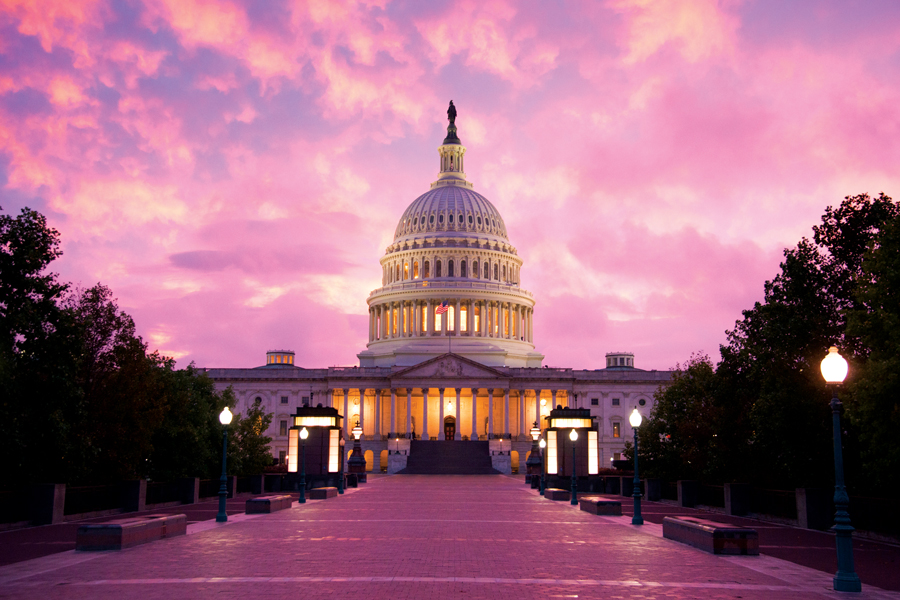

Investment advisers breathed a sigh of relief — at least for now — about a congressional proposal Monday to raise taxes on the wealthy to pay for a sweeping bill that would fund Biden administration spending priorities.
The House Ways and Means Committee released the 881-page legislative text for proposed tax increases to raise the revenue to pay for the $3.5 trillion Build Back Better Act working its way through Congress.
The tax proposal would hike rates on ordinary and investment income, place limits on huge individual retirement accounts and lower the estate tax exemption, according to a summary. The panel is due to vote on the legislation later this week.
But the legislation does not include a provision to tax unrealized capital gains on inherited assets, ending the so-called step-up-in-basis. Advisers had been dreading such a move. They also had been girding for a much bigger increase in the capital gains tax rate that would have matched the highest individual tax rate.
Those ideas had been floated over the past few months by the Biden administration. But Monday’s scaled-back proposal demonstrated the political challenge of pushing the Build Back Better bill — which contains a number of social, health care, climate and other programs — through a Congress in which Democrats hold narrow majorities in the House and Senate.
Matt Chancey, an adviser at Dempsey Lord Smith, likes the more modest approach to tax increases.
“Instead of massive changes, these seem to be reasonable pivots,” Chancey said. “It’s significantly less than what could have happened.”
Dennis Nolte, vice president of Seacoast Investment Services, was sanguine about the proposal.
“At the end of the day, it’s not bad,” he said.
President Biden and congressional Democrats had promised to limit tax increases to people making more than $400,000 annually. The Ways and Means proposal emphasized that floor.
“It is reasonable because it is targeted at the very rich,” said Vid Ponnapalli, president of Unique Financial Advisors.
Advisers were shocked that the step-up in basis has survived at least this initial tax reform bid.
“I’m surprised not to see something on step-up basis, which is a win as it relates to estate planning for clients,” said Brandon Garrett, president of BentOak Capital. “Losing the step-up basis was going to really impact the upper-middle-income investor.”
But the tax break is not yet secure. The Ways and Means legislation is the first formal tax proposal by the House committee that is writing legislation to fill out the $3.5 trillion budget outline Congress approved last month. It’s not clear whether a tax proposal from the Senate Finance Committee will include the same policies as the Ways and Means legislation.
“It’s a temporary sigh of relief,” said Palmer Schoening, chairman of the Family Business Coalition, which represents small businesses and farms. “There is still a tug of war over which special tax payfors to include. All of these issues are on the table.”
The array of tax policies in the House Ways and Means proposal includes raising the top marginal tax rate to 39.6% for individuals with taxable income over $400,000 and married couples over $450,000; increasing the capital gains tax from 20% to 25%; imposing a 3% surcharge for adjusted gross income above $5 million for an individual, or $2.5 million for a married person filing separately; placing restrictions on individual retirement accounts that exceed $10 million; limiting Roth IRA conversions for high earners; prohibiting Roth conversions for after-tax IRA contributions; and reducing the estate-tax exemption for individuals from $11.7 million to $6 million.
The bill did not include a provision many advisers wanted to see to increase the $10,000 ceiling on deducting state and local taxes. Ways and Means Chairman Richard Neal, D-Mass., said the idea could be considered later in the legislative process.
“With Speaker Pelosi, we continue to work among our colleagues and the Senate to undo the short-sighted capping of SALT by Republicans,” Neal said in a joint statement with Reps. Bill Pascrell Jr., D-N.J., and Tom Suozzi, D-N.Y. “We are committed to enacting a law that will include meaningful SALT relief that is so essential to our middle-class communities, and we are working daily toward that goal.”
Congressional Democrats are trying to approve the Build Back Better bill through a parliamentary process known as reconciliation that would bypass a Republican filibuster in the Senate. The congressional GOP likely will be united against the measure.
But that path requires that each of the 50 Senate Democrats and almost every House Democrat back the legislation. The politics of reaching that level of support could result in significant changes in the amount of spending and taxes in the bill. The legislative process could continue for weeks or months.
In the meantime, advisers are preparing their clients for potential tax increases, even if they’re not as high as anticipated.
“Use this opportunity to pay your taxes now and diversify,” Nolte said. “That’s a good conversation to have with folks.”
Financial planning will require keeping an eye on Congress.
“We’ll watch what happens next,” Ponnapalli said.

Wells Fargo has also added more than $800 million in new AUM with recruitments from UBS, Osaic, and Merrill Lynch.

Also, Merit has added an $860 million RIA to bolster its Texas presence while Concurrent's asset management arm partners with a boutique investment shop.

Wells Fargo, Commonwealth, UBS are the firms losing advisor teams.

Firms are facing increasing scrutiny over whether they can be held responsible for losses by clients whose ability to understand their investments has been compromised.

Decision deepens the two firms' decade-long relationship.
Orion's Tom Wilson on delivering coordinated, high-touch service in a world where returns alone no longer set you apart.
Barely a decade old, registered index-linked annuities have quickly surged in popularity, thanks to their unique blend of protection and growth potential—an appealing option for investors looking to chart a steadier course through today's choppy market waters, says Myles Lambert, Brighthouse Financial.
